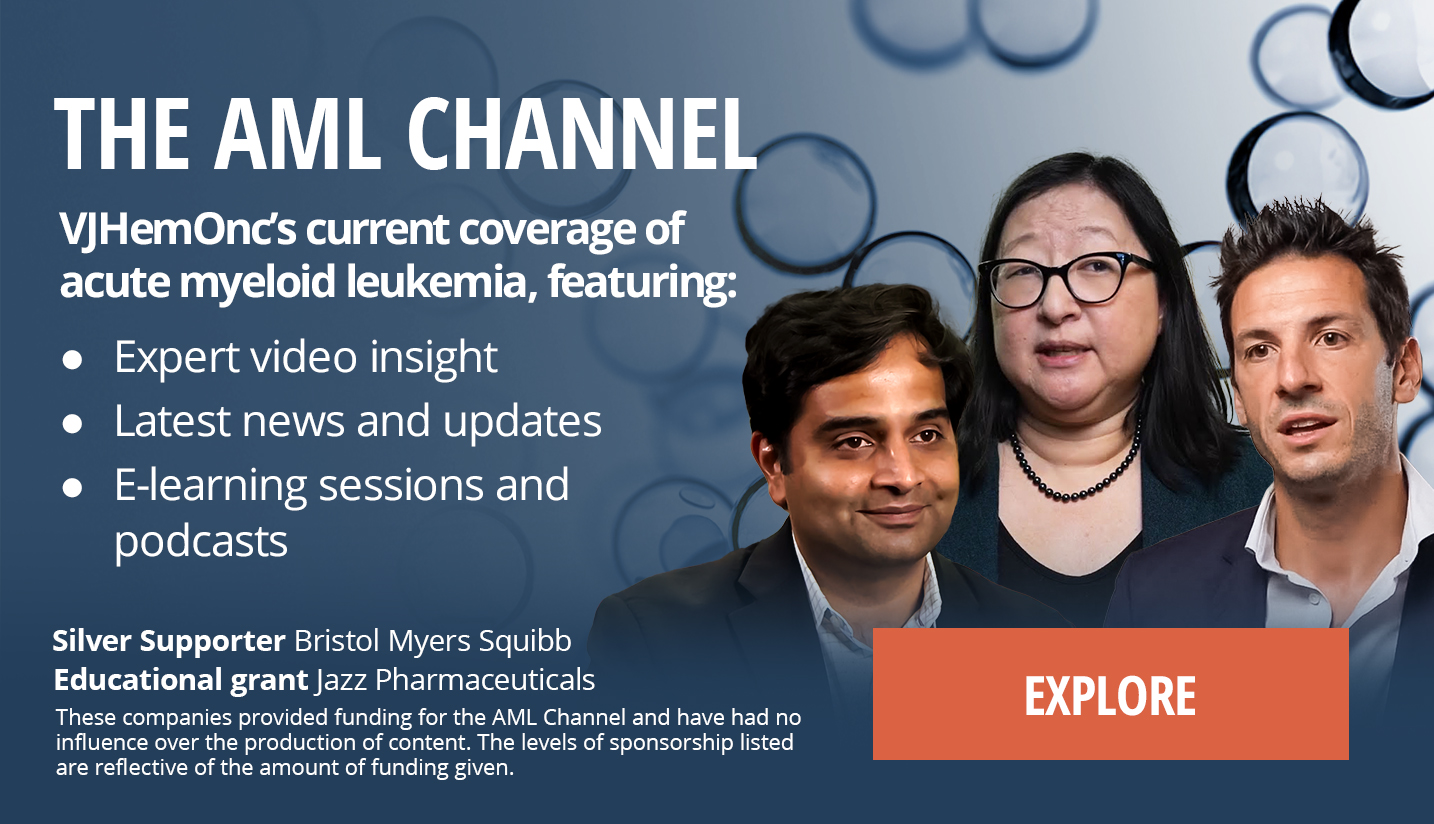So in this study we were looking at a pooled analysis of two different trials that were combining triplet regimens for patients that had either an IDH1 or IDH2 mutated AML, which occurs in about 20% of patients with AML. And so we looked at the trial that included ivosidenib, venetoclax, and azacitidine, as well as patients that were on a trial combining oral decitabine or Inqovi with venetoclax and either ivosidenib or enasidenib, depending if they had an IDH1 or an IDH2 inhibitor...
So in this study we were looking at a pooled analysis of two different trials that were combining triplet regimens for patients that had either an IDH1 or IDH2 mutated AML, which occurs in about 20% of patients with AML. And so we looked at the trial that included ivosidenib, venetoclax, and azacitidine, as well as patients that were on a trial combining oral decitabine or Inqovi with venetoclax and either ivosidenib or enasidenib, depending if they had an IDH1 or an IDH2 inhibitor. And so all of the patients that we looked at in this study had a new diagnosis of AML, but the patients were not eligible for standard induction chemotherapy. And so they tended overall to be a slightly older patient population for that reason. Really excitingly, we found really great results in these patients. With a median follow-up of about 18 months, we still have not found the median overall survival. 92% of patients have received a composite complete remission, which is very exciting. And our two-year median overall survival was 82% at this point. And a very large percent of patients were able to get to transplant, about 24% of the patients on the study thus far. Overall, we found that the regimen was very well tolerated, which is also something that was good. A lot of the standard side effects are the ones that we would expect with hypomethylating agents and venetoclax alone. And so we think that these are really promising results and we hope that over time we’re able to keep kind of growing this case and see the results with the triplet therapies for patients.
This transcript is AI-generated. While we strive for accuracy, please verify this copy with the video.














